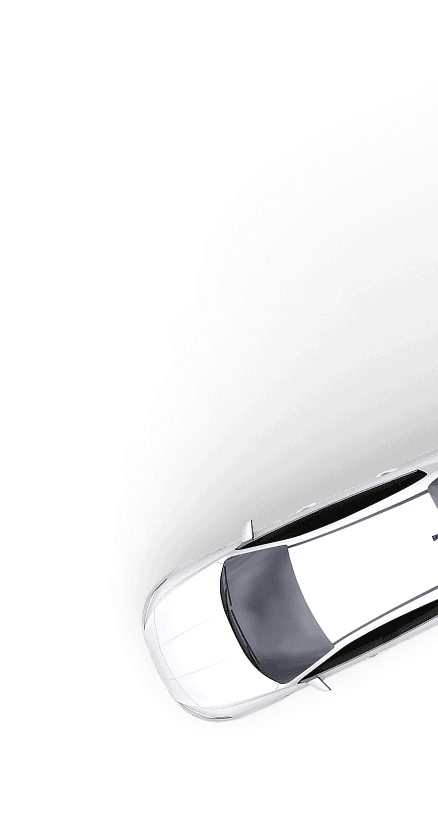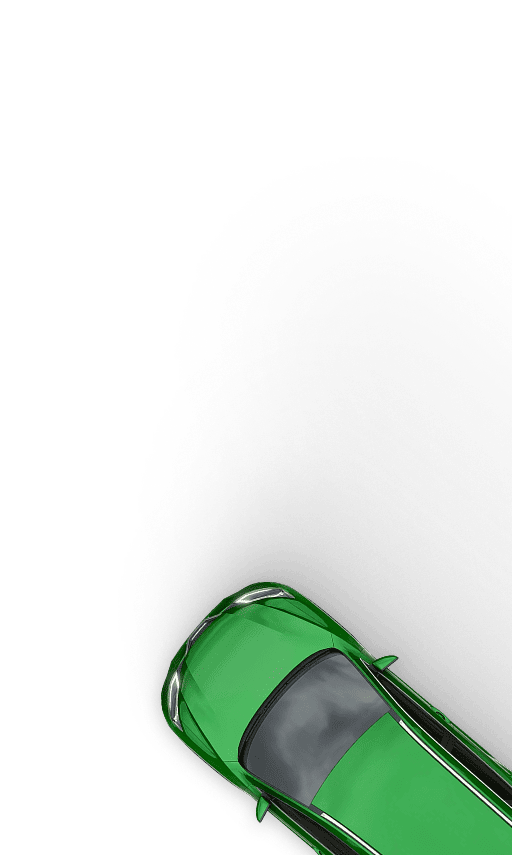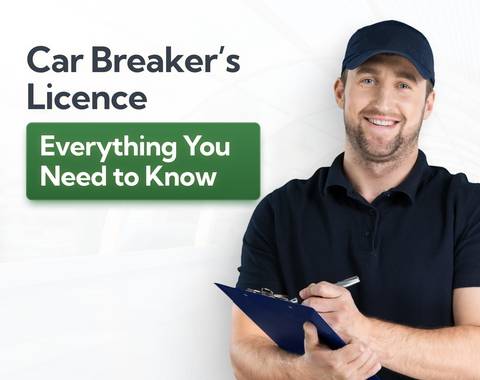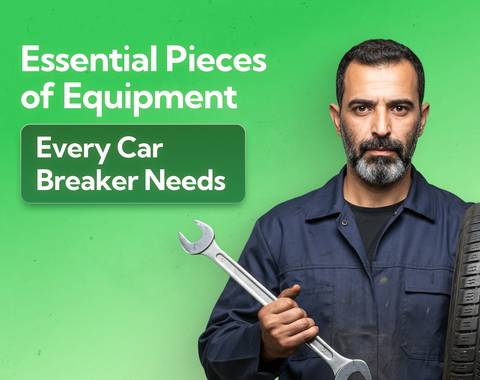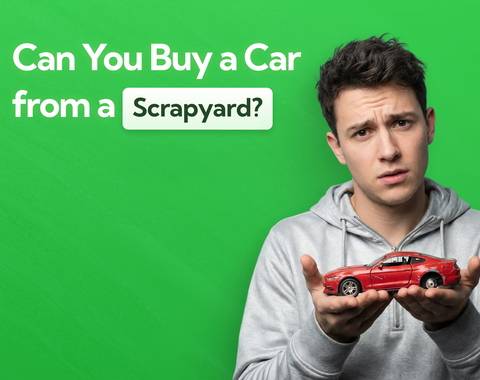Can I Notify the DVLA Online if I Scrap My Car? Answered
If you’ve scrapped your car through a licensed Authorised Treatment Facility (ATF) and have the V5C logbook, you can notify the DVLA online in just a few minutes. It’s the fastest way to update their records and make sure you’re no longer legally responsible for the vehicle. This article shows you how it works.
Last updated: 23rd October, 2025

Anthony Sharkey is COO at New Reg Limited (Car.co.uk, Trader.co.uk, Garage.co.uk), driving innovation in vehicle recycling, logistics, and customer experience.

Listen to this story
Once you scrap your car, you have to tell the DVLA. That way, they won't expect you to pay road tax or insurance for a vehicle you no longer have. Instead of going through the hassle of mailing paperwork, there's a way to notify the DVLA online.
If you plan to scrap your car, there are a few things you have to do:
- Find an Authorised Treatment Facility (ATF).
- Get a Certificate of Destruction (CoD).
- Let the DVLA know that you’ve disposed of your car by filling out a notification form.
- Return or dispose of your V5C logbook.
- Cancel your road tax direct debit with the DVLA.
- Cancel your insurance policy (don't do this until after scrapping the car).
Every step of the way, there's some paperwork involved, especially where it requires correspondence with the DVLA. Fortunately, it's not difficult at all. Let's dive in.
What's in this article
- 1. If you plan to scrap your car, there are a few things you have to do:
- 2. Telling the DVLA you've scrapped your car
- 3. Is there a fee to notify the DVLA when I scrap my car?
- 4. Will I receive confirmation from the DVLA after scrapping my car?
- 5. How long does it take for the DVLA to process a scrapping notification?
- 6. Can I tell the DVLA I've scrapped my car on a weekend?
- 7. What happens after I notify the DVLA that I’ve scrapped my car?
- 8. How to find an Authorised Treatment Facility
- 9. What should I do if I make a mistake in my online car scrappage notification?
- 10. Who can legally scrap a car and notify the DVLA?
- 11. The bottom line
Telling the DVLA you've scrapped your car
You can notify the DVLA online or by post. The easiest way to notify the DVLA that you've scrapped your car is via their free online service.
For online notification, visit the DVLA's website and fill in the required details:
- Your vehicle registration number
- The 11-digit reference number from your V5C
- The name and address of the Authorised Treatment Facility (ATF) where the car was scrapped
- Date the vehicle was scrapped
Next, fill out the yellow “sell, transfer, or part-exchange your vehicle to the motor trade” section (Section 9 for logbooks issued before April 2019 or Section 4 for those issued after April 2019) of your V5C. Send this section to the DVLA. Keep a copy for your records.
Is there a fee to notify the DVLA when I scrap my car?
There is no fee to notify the DVLA that you have scrapped your car. The online notification service is free, which makes it the preferred option for most people.
If you do not tell the DVLA you’ve scrapped your car, you will receive a fine of £1,000.
Will I receive confirmation from the DVLA after scrapping my car?
Once the DVLA has processed your notification, they will send you a letter confirming that your vehicle has been scrapped and that you are no longer the registered keeper. This confirmation is important as it officially ends your legal responsibility for the vehicle.
How long does it take for the DVLA to process a scrapping notification?
If you notify the DVLA online, they typically process the notification very quickly. You should receive a confirmation letter from the DVLA within 14 days. If you do not receive this confirmation within that timeframe, we recommend contacting the DVLA to ensure your notification was received and processed.
Can I tell the DVLA I've scrapped my car on a weekend?
Yes, you can notify the DVLA that you’ve scrapped your car on a weekend. The online service for notifying the DVLA about scrapped vehicles is available from 7 am to 7 pm every day, including weekends. This means you can conveniently use the online form to update the DVLA outside of regular weekday business hours.
What happens after I notify the DVLA that I’ve scrapped my car?
Acknowledgement from the DVLA
The DVLA will send you an acknowledgement letter confirming that they have received your notification that the car has been scrapped. This usually arrives within four weeks. This letter serves as confirmation that you are no longer responsible for the vehicle.
End of legal and financial responsibility
Once the DVLA has received your notification, you are no longer legally responsible for the car. This means you won't have to pay road tax, insurance, or any penalties associated with the car.
Road tax refund
If you had paid road tax for any period beyond the scrapping date, the DVLA will process a refund for the remaining amount. You don't have to do much to reclaim your unused road tax — this refund is automatically processed and sent to the registered keeper's address.
Insurance cancellation
You should have already informed your insurance company that the car has been scrapped. If not, do so immediately. Any refund for unused insurance will depend on your policy terms.
See: A Guide to Cancelling Car Insurance
Environmental responsibility
The Authorised Treatment Facility (ATF) will handle the environmentally responsible disposal of the vehicle. They will ensure that hazardous materials are safely removed and that the car is recycled in accordance with environmental regulations.
Certificate of Destruction (CoD)
Once the vehicle is scrapped, the ATF will provide you with a Certificate of Destruction. This document serves as proof that your vehicle has been legally scrapped.
Potential queries
In some cases, the DVLA comes back to you needing additional information. Or, there might be discrepancies. If this happens, respond promptly to any communications to avoid potential fines or legal issues.
How to find an Authorised Treatment Facility
Finding an Authorised Treatment Facility (ATF) to scrap your car in the UK is a straightforward process.
- Use the UK government's online resources. You can visit the GOV.UK website to locate a vehicle scrapyard, breaker’s yard, or dismantler in your area. This tool allows you to enter your postcode to find the nearest ATF.
- Check the Environment Agency public register. The Environment Agency maintains a public register of ATFs. You can access this register through the Environment Agency’s website. This register provides detailed information on permitted ATF sites and ensures they comply with current legislation.
- Have us do the work for you. Through our free online service, you can get an instant scrap car quote, arrange a free same-day or next-day pickup, and receive payment on the spot for your scrapped car. We sort all the paperwork for you and work with a network of certified ATF partners across the UK, so you can access this service no matter where you live.
Remember: Verify the facility you choose is licensed and complies with the Environmental Permitting Regulations. ATFs should have the correct planning permissions and environmental permits and be capable of issuing a Certificate of Destruction (CoD) through the DVLA.
What the experts say

Steven Jackson OBE
What should I do if I make a mistake in my online car scrappage notification?
The best way to rectify a mistake is to contact the DVLA directly. You can call their customer service at 0300 790 6802. Explain the error and provide the correct information.
If advised by customer service, you can email the DVLA with the correct details. Ensure you include all relevant information and a clear explanation of the mistake.
Keep in mind that if the information does not add up, the DVLA won't be able to process your car scrappage notification anyways. So, worst case scenario, you may have to start the process over again days or weeks later.
Who can legally scrap a car and notify the DVLA?
Aside from the registered keeper of a vehicle, certain other parties have the legal authority to scrap a car and notify the DVLA. These include:
- Insurance companies or salvage agents (if they are handling a claim for a written-off vehicle)
- An ATF (often, they'll automatically notify the DVLA for you)
- A permitted third party (under certain circumstances)
If the owner is away from home or otherwise needs someone else to scrap their car, the one scrapping it will need to present the following information and documents:
- The owner's explicit written authorisation
- The vehicle log book (V5C), completed and signed by the owner
- The owner's photo ID
- A utility bill from the owner
- Proof of their identity (such as a passport or driving licence)
This is to ensure the car being scrapped hasn't been stolen and sold for scrap without the registered keeper's knowledge or authorisation. Under the Scrap Metal Dealers Act 2013, dealers are legally required to verify ownership and identification before scrapping any vehicle.
The bottom line
Even if the ATF scrapping your car notifies the DVLA on your behalf, it is your responsibility to ensure the notification is completed. To avoid any potential issues, be sure to follow all the necessary steps and keep detailed records of the scrappage process. And remember, if you have any questions or concerns, do not hesitate to contact the DVLA customer service for guidance.
About Car.co.uk
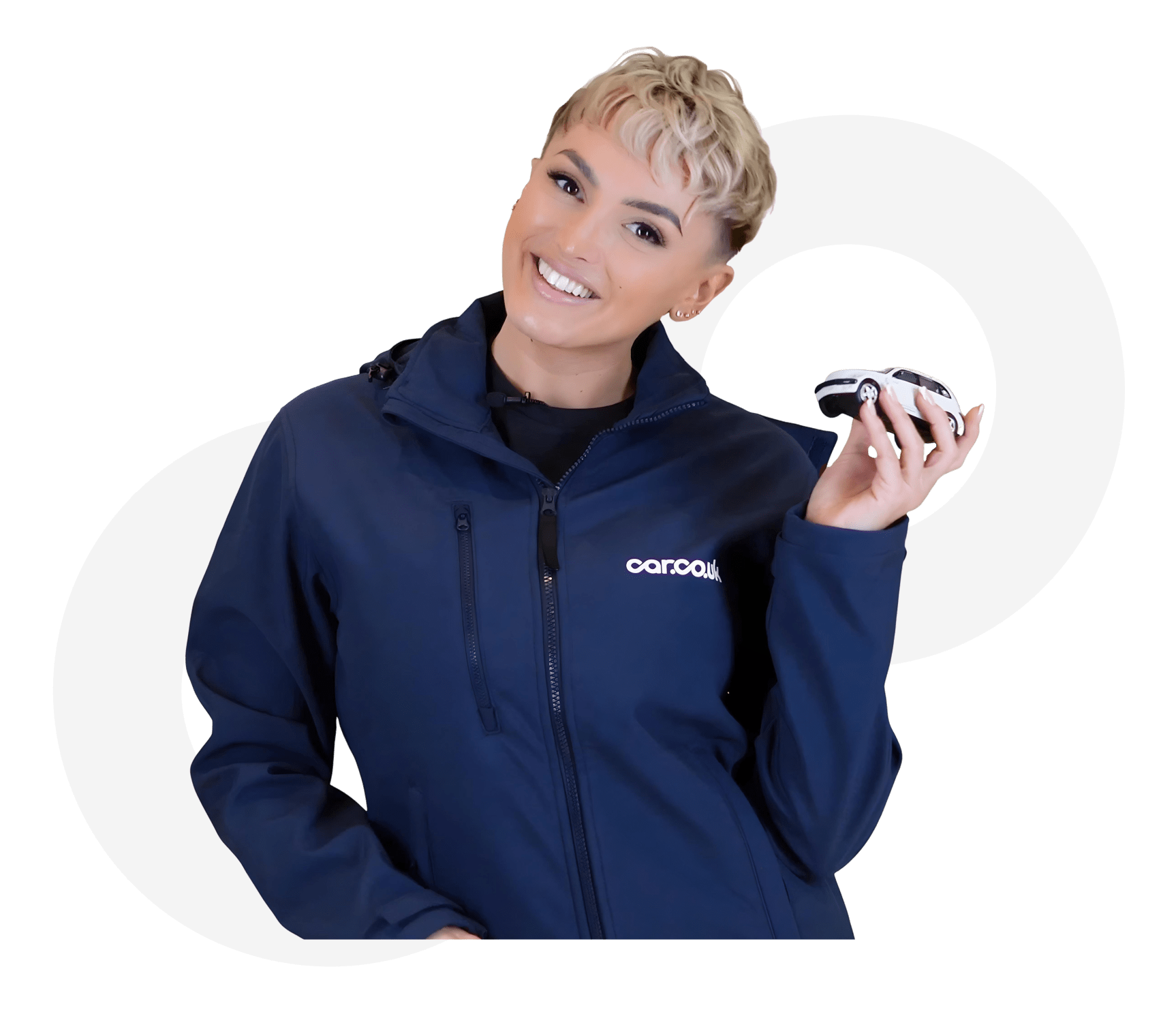
Share on
Latest news & blogs

